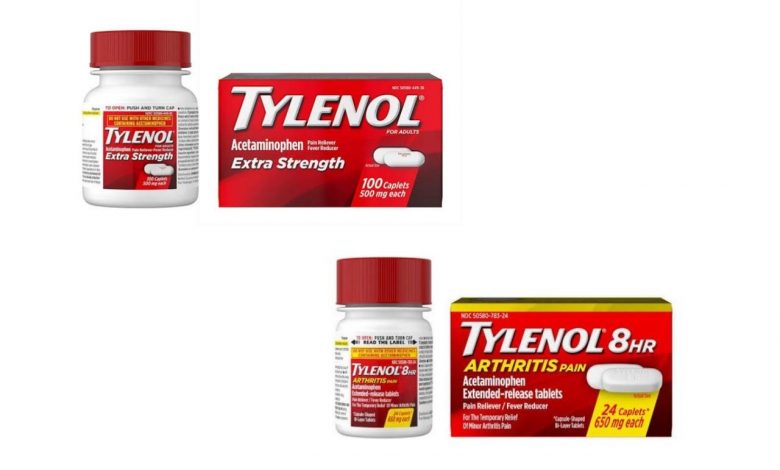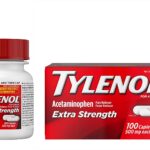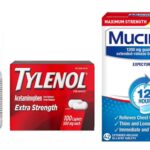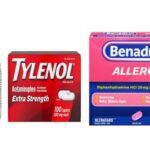What Is The Difference Between Regular Tylenol And Tylenol Arthritis?

Tylenol is a brand of drugs advertised for reducing pain, reducing fever, and relieving the symptoms of allergies, cold, cough, headache, and influenza. The active ingredient of its original flagship product is paracetamol (known in the United States, Canada, and various other countries as acetaminophen), an analgesic and antipyretic. Like the words paracetamol and acetaminophen, the brand name Tylenol is derived from a chemical name for the compound, N-acetyl-para-aminophenol (APAP).
The active ingredient in Tylenol is acetaminophen, a widely used over-the-counter analgesic (pain reliever) and antipyretic (fever reducer). Formulations with additional active ingredients intended to target specific applications are sold under the Tylenol brand.
What is Tylenol Arthritis?
Tylenol Arthritis also contains the active ingredient acetaminophen and is a drug often recommended by health care providers to treat arthritis pain. Like other anti-inflammatory medicines, it has a role in the non-surgical treatment of hand and arm pain. In fact, some research shows that if you have arthritis pain, you should try acetaminophen first, before trying other medicines, like ibuprofen and naproxen.
Tylenol currently comes in several versions. Most patients taking it for arthritis pain will probably take one of the following:
- Extra Strength Tylenol Rapid Release Gels (500 mg)
- Regular Strength Tylenol (325 mg)
- Tylenol 8 Hour (650 mg)
- Tylenol Arthritis Pain (650 mg)
What is the difference between Tylenol and Tylenol Arthritis?
The regular Tylenol pill contains 325 mg of acetaminophen which lasts about four to six hours, on the other hand, Tylenol 8-Hour Arthritis Pain is an extended-release tablet that contains 650 mg of acetaminophen with a unique double-layer design. Each extended-release tablet contains 650 mg of acetaminophen, with two layers of effective pain relief – the first layer acts fast and the second lasts up to 8 hours.
Tylenol Arthritis can be used as a fever reducer and to relieve minor aches and pains, including those due to arthritis, joint ache, knee pain, muscle aches, backache, headache, toothache, the common cold, and pre-menstrual and menstrual cramps.
Tylenol Arthritis pain relief caplets can be used by adults 18 years and older and have an excellent safety profile when used as directed.
Do Tylenol and Tylenol Arthritis have the same side effects?
Tylenol and Tylenol Arthritis have similar side effects which can include:
- red, peeling, or blistering skin
- rash
- hives
- itching
- swelling of the face, throat, tongue, lips, eyes, hands, feet, ankles, or lower legs
- hoarseness
- difficulty breathing or swallowing
Acetaminophen poisoning can happen from taking too much Tylenol or Tylenol Arthritis. Your liver processes acetaminophen and converts it into a different substance. If you take large amounts of acetaminophen, your liver produces more of that substance. And when there is too much of it, that substance can damage your liver. However, if you take acetaminophen at the recommended dosage, liver damage from the drug is not likely.
Symptoms of liver damage include:
- yellowing of your skin or the whites of your eyes (jaundice)
- pain in the upper right area of your abdomen
- nausea or vomiting
- loss of appetite
- fatigue
- sweating more than usual
- pale skin
- unusual bruising or bleeding
- dark or tea-colored urine
- dark, tarry stools
If you suspect you’ve taken too much Tylenol or Tylenol Arthritis or notice any of these symptoms, contact your poison control center or get medical help right away. The current maximum recommended adult dose is 4,000 milligrams per day. If you know you’ve taken more than the recommended dosage of Tylenol or Tylenol Arthritis, go to the nearest emergency room, even if you don’t have any symptoms of liver damage. If someone you know who has taken acetaminophen becomes unresponsive or stops breathing, call 9-1-1 or the number for your local emergency services.
If you experience a serious side effect, you or your doctor may send a report to the Food and Drug Administration’s (FDA) MedWatch Adverse Event Reporting program online (http://www.fda.gov/Safety/MedWatch) or by phone (1-800-332-1088).





